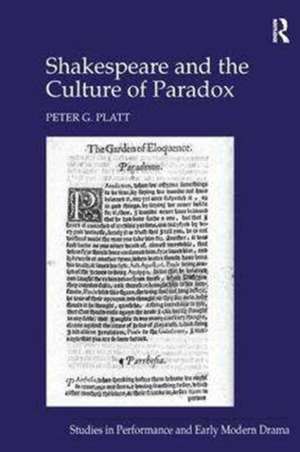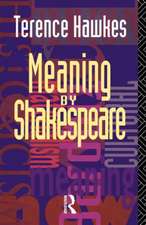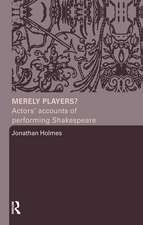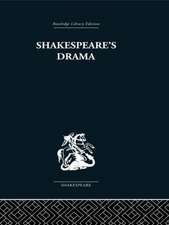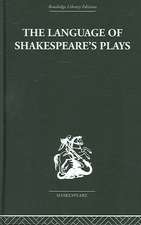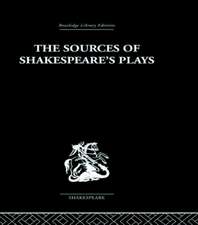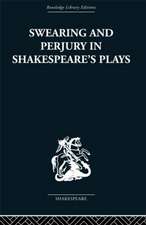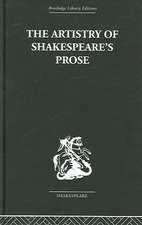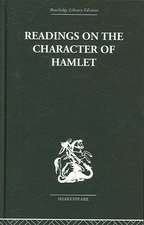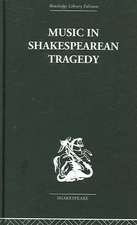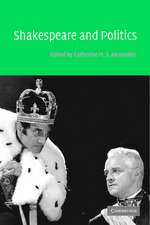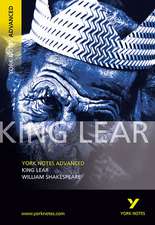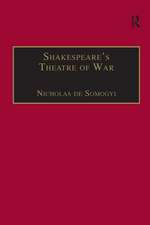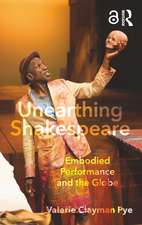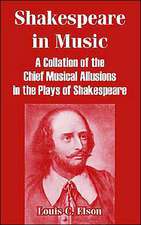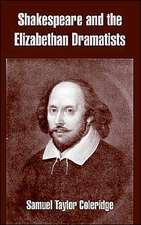Shakespeare and the Culture of Paradox
Autor Peter G. Platten Limba Engleză Paperback – 16 noi 2017
| Toate formatele și edițiile | Preț | Express |
|---|---|---|
| Paperback (1) | 437.71 lei 6-8 săpt. | |
| Taylor & Francis – 16 noi 2017 | 437.71 lei 6-8 săpt. | |
| Hardback (1) | 1057.89 lei 6-8 săpt. | |
| Taylor & Francis – 17 feb 2009 | 1057.89 lei 6-8 săpt. |
Preț: 437.71 lei
Nou
Puncte Express: 657
Preț estimativ în valută:
83.75€ • 87.45$ • 69.16£
83.75€ • 87.45$ • 69.16£
Carte tipărită la comandă
Livrare economică 15-29 aprilie
Preluare comenzi: 021 569.72.76
Specificații
ISBN-13: 9781472484710
ISBN-10: 1472484711
Pagini: 264
Dimensiuni: 156 x 234 x 22 mm
Greutate: 0.49 kg
Ediția:1
Editura: Taylor & Francis
Colecția Routledge
Locul publicării:Oxford, United Kingdom
ISBN-10: 1472484711
Pagini: 264
Dimensiuni: 156 x 234 x 22 mm
Greutate: 0.49 kg
Ediția:1
Editura: Taylor & Francis
Colecția Routledge
Locul publicării:Oxford, United Kingdom
Notă biografică
Peter G. Platt is a Professor of English at Barnard College. He is the author of Reason Diminished: Shakespeare and Marvelous and the editor of Wonders, Marvels, and Monsters in Early Modern Culture.
Recenzii
'Readers and audiences have often sensed, with mingled pleasure and uneasiness, that all of Shakespeare’s plays, and not merely a designated few, are what have been called problem plays, plays that do not endorse settled positions, embrace firm resolutions, or decisively clarify ambiguities. In this rich and thoughtful book, Peter Platt explores the intellectual, moral, and aesthetic culture that reveled in paradox and dwelt in the uncertainties, contradictions, and doubleness of the world. Writing in the wake of deconstruction and new historicism, Platt is the worthy successor of the pioneering work of Rosalie Colie.' Stephen Greenblatt, Harvard University, USA 'This is a very stimulating, wide-ranging account of the fascination that paradox held for an age increasingly alert to the discovery of the unexpected - from both old and new cultures - and of the ways in which paradox - verbal, visual, conceptual, performative, and intersubjective - informs Shakespeare's drama and his theater. Among its many virtues, it offers not only historical and theoretical purchase on the phenomenon of paradox, but also sustains a lively engagement with ongoing scholarly debate about the meaning of paradox and its functions in Shakespeare, thereby provoking the reader to participate in the critical discourse. The book will interest everyone who seeks to understand the often puzzling antithetical character of much Renaissance literature - and, a fortiori, of Shakespeare's work for the theater.' Joel B. Altman, University of California, Berkeley, USA ’Reading Peter Platt's Shakespeare and the Culture of Paradox, I find it hard to imagine a more sure-handed and thorough treatment of the figure of the paradox, not to mention one paired with intelligent and fascinating criticism of Shakespeare's plays. The reader will certainly learn much about paradox in this volume; she will learn quite a bit about Shakespearean drama, too.’ Doug Eskew, Appositions ’As Pl
Descriere
Peter Platt here examines Renaissance culture through the lens of paradox. Specifically, he analyzes paradoxes surrounding geography, equity law, and the acting in and witnessing of the Elizabethan-Jacobean theater itself. In showing that Shakespeare's plays create and are created by a culture of paradox, Platt offers an exciting and innovative investigation of Shakespeare's cognitive and affective power over his audience.
